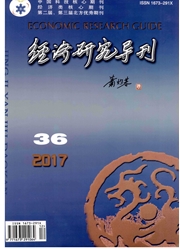

 中文摘要:
中文摘要:
间接补贴是为私有林创造良好外部环境的各种财政支出。我国林业间接补贴虽然总体趋势上扬,但还是存在水平偏低、补贴体系供给不足、补贴优先序不合理、重固定资产方面的“硬”补贴,轻科技方面的“软”补贴、生态环境基本建设支出较大,用材林基地建设支出偏低等特点。基于国外私有林补贴政策启示,私有林间接补贴制度的完善首先应重塑林业一般政府服务支出框架,具体包括林业科技投入优先、夯实林业基础建设、建立病虫害防控机制、深化林业社会化服务平台建设等措施;其次是构建私有林补偿性补贴制度,如完善林业保险制度、构建收入安全网络等;再次是从加强金融信贷扶持以及轻税薄费,进一步深化林业税费制度改革两方面来完善私有林激励性补贴制度。
 英文摘要:
英文摘要:
Indirect subsidies are all kinds of fiscal expenditure which create a favorable external environment for private forest. Indirect subsidies in China go up to this general trend. But it exists in some characteristics, such as low level, insufficient supply of subsidy system, unreasonable subsidies priority, taking" hard" subsidies in fixed assets seriously, making light of the" soft" subsidies of science and technology, greater expenditure for capital construction ecological environment, lower expenditure for timber forest base construction. Firstly, improvement on private forest subsidy system should rein- vent forestry general government spending on services framework, including investment priorities in for- estry science and technology, compaction forestry base construction, establishment of plant diseases and insect pests prevention and control mechanisms, deepening the construction of forestry social serv- ice platform, and so on. Secondly, we should construct private forest compensatory allowance system including perfection forestry insurance system, construction income security network. Again, we should perfect private forest incentive subsidy system from both sides of strengthening the financial and credit support and lightening tax cost, and further deepening the reform of the forestry tax system.
 同期刊论文项目
同期刊论文项目
 同项目期刊论文
同项目期刊论文
 期刊信息
期刊信息
